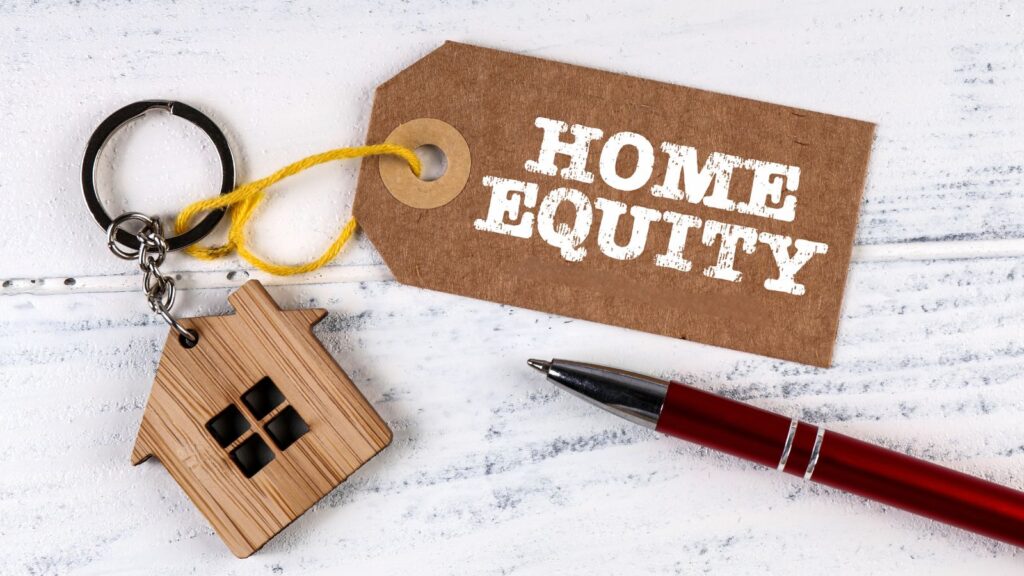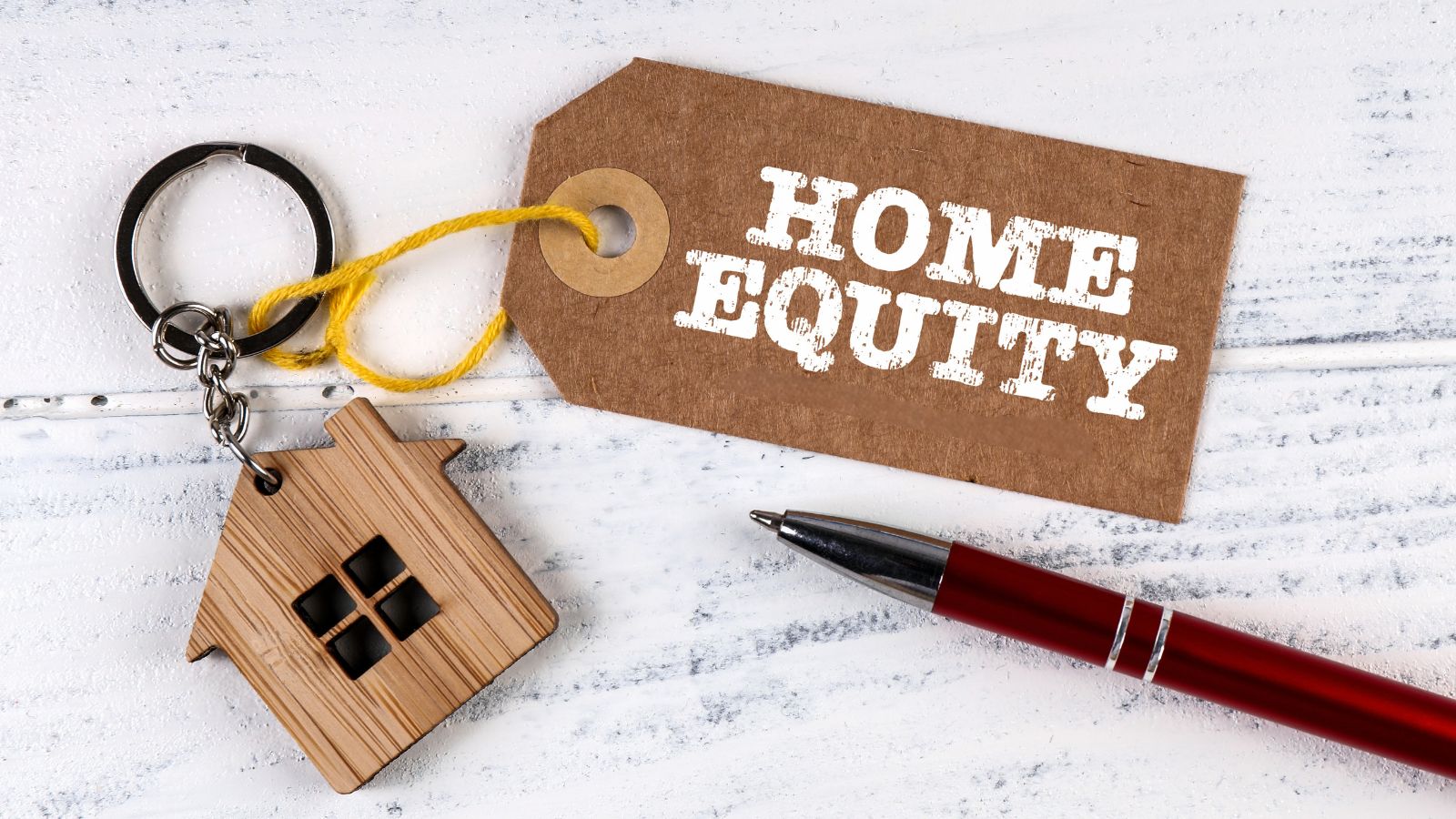For many homeowners, selling a property represents more than a simple transaction—it’s the culmination of years of building equity. This financial asset, which grows as you pay down your mortgage and as property values rise, can play a crucial role in your next steps, whether you’re buying a new home, investing, or pursuing other goals. Understanding how home equity works, its benefits and the strategies for maximizing it when selling can help you approach the process with confidence and clarity.

What is Home Equity, and Why Does it Matter When Selling?
Home equity is the financial difference between your home’s market value and the amount you still owe on your mortgage. For homeowners preparing to sell, this equity represents the potential profit from the sale, making it a key component of the financial planning process.
As you’ve made mortgage payments over the years, your equity has grown in two ways: by reducing the principal on your loan and by benefiting from market appreciation. For instance, if you purchased your home for $250,000 and its value has risen to $350,000, while your mortgage balance is now $200,000, your equity totals $150,000.
This equity becomes your leverage for future plans, whether you intend to reinvest in another property, pay off debt, or boost your savings. However, costs associated with selling—such as agent commissions, closing costs, and mortgage balances—reduce the final proceeds you’ll take home.
To fully understand your equity position, it’s vital to determine your home’s current market value. Consulting a real estate professional to conduct a comparative market analysis can provide an accurate estimate. This helps ensure that your expectations are realistic and that you’re prepared for the financial decisions involved in selling. Knowing the true value of your equity gives you clarity and confidence as you take the next step in your real estate journey.
Maximizing Equity Before Listing Your Home
Before putting your home on the market, taking steps to maximize your equity can significantly impact the final sale price. Strategic improvements and preparations not only enhance your home’s appeal but also position it for a strong market response.
Start by identifying updates with a high return on investment. Kitchen and bathroom renovations are among the most impactful, as these areas are key selling points for buyers. Projects like updating countertops, replacing outdated fixtures, or adding energy-efficient appliances can boost your home’s value without overspending. Smaller updates, such as repainting walls in neutral colors or improving curb appeal with landscaping, also make a noticeable difference.
Repairs are equally important. Addressing issues like leaky faucets, cracked tiles, or peeling paint prevents these minor problems from becoming deal-breakers for potential buyers. A pre-sale inspection can help identify areas that need attention, allowing you to address them proactively.
Staging is another critical step in showcasing your home’s potential. Decluttering and rearranging furniture can make spaces appear larger and more inviting, helping buyers envision themselves in the home. Professional photography for online listings ensures that your home stands out to prospective buyers.
While preparing your home, be mindful of not over-improving. Spending too much on upgrades that outpace the neighborhood’s market value may not yield a proportional return. A real estate agent with local market knowledge can guide you on which improvements will maximize your equity without overextending your budget. These steps ensure your home appeals to buyers while helping you retain more of your hard-earned equity.
The Role of Market Timing in Selling Your Home
When selling your home, market conditions play a pivotal role in determining how much equity you can retain. Listing at the right time can mean the difference between multiple strong offers and a slower sale.
In a seller’s market, where demand outpaces supply, homes typically sell faster and at higher prices, allowing sellers to maximize their profits. Understanding whether your local market favors buyers or sellers is crucial. Factors like housing inventory, buyer demand, and interest rates all contribute to these conditions.
Seasonal trends often affect the real estate market as well. Spring and early summer are traditionally the busiest times for home sales, driven by favorable weather and the desire for families to move before a new school year begins. However, some regions experience robust activity year-round, particularly in competitive urban markets.
Broader economic factors, such as interest rates, also influence selling conditions. Lower rates make mortgages more affordable for buyers, increasing demand. Conversely, rising rates may cool buyer enthusiasm, potentially impacting your home’s market value.
To navigate these variables, working with a real estate professional is essential. They can provide insights into market trends, assess your neighborhood’s activity, and recommend the best timing for your sale. Combining strategic timing with a well-prepared home positions you to unlock the full potential of your equity while meeting your selling goals.
How Selling Impacts Your Equity
Your equity determines the net proceeds you’ll receive when selling, making it the cornerstone of your financial planning. Understanding how costs and other factors influence your equity ensures you’re prepared for the process.
The sale price of your home is the starting point for calculating equity. From this amount, you’ll subtract the remaining mortgage balance, real estate agent commissions (typically 5-6% of the sale price), closing costs (around 2-4%), and any other expenses, such as staging or repairs made to prepare the home for sale.
For example, if your home sells for $400,000 and you owe $250,000 on your mortgage, you’ll begin with $150,000 in equity. After deducting $24,000 in agent commissions (6%) and $12,000 in closing costs (3%), your net proceeds will be $114,000.
It’s essential to plan for these costs when setting expectations for your equity. This net amount often serves as the foundation for your next steps, such as purchasing a new home, investing, or saving for future goals. For sellers downsizing or moving to a lower-cost area, the equity can provide a significant financial cushion.
To protect and maximize your equity, choose professionals who can help you price your home competitively, minimize costs, and negotiate effectively. With the right approach, your equity becomes a powerful asset as you transition to your next chapter.
How to Use Your Equity After Selling
After the sale, your equity opens doors to new opportunities, offering financial freedom to pursue your goals. How you use it depends on your plans, whether purchasing a new home, downsizing or reallocating funds toward other priorities.
For many sellers, the equity serves as a down payment on their next property. A larger down payment can lower monthly mortgage payments or help you qualify for a more desirable home. If you’re moving to a more expensive area, leveraging your equity strategically ensures your new purchase aligns with your financial comfort zone.
For those downsizing, selling a larger home and purchasing a smaller one often frees up significant funds. This equity can be redirected toward retirement savings, investments, or even a debt-free lifestyle.
If you’re not immediately buying another property, renting or relocating temporarily allows you to invest the equity elsewhere. From starting a business to building a diverse portfolio, the proceeds from your sale can become a stepping stone to long-term financial growth.
Consider consulting with a financial advisor to explore how your equity can best support your future plans. Whether reinvesting in real estate or pursuing other opportunities, thoughtful planning ensures that the financial benefits of selling your home extend far beyond the transaction itself.
Preparing for the Transition: What Sellers Need to Know
Preparing to sell your home involves more than staging and setting a price—it’s about planning for a smooth transition and ensuring you make the most of your equity. Taking proactive steps reduces stress and helps you focus on your goals.
Start by gathering essential documents, such as your mortgage statement, tax records, and details of any significant upgrades or repairs. These records not only help you accurately price your home but also instill confidence in buyers.
Assess your home’s current value through a professional comparative market analysis. Understanding where your property stands in the local market ensures you price it competitively and attract serious offers.
Think ahead about your next move. Whether buying another home, downsizing, or renting, having a clear plan ensures a smoother transition. This is especially important if you’re coordinating the timing of your sale and purchase.
Choose a trusted real estate professional to guide you through the selling process. From pricing and marketing to negotiations and closing, their expertise is invaluable in helping you maximize your equity while minimizing hurdles. With careful preparation, you can approach the sale with confidence and make the most of the equity you’ve worked hard to build.
Ready to Unlock the Full Potential of Your Home Equity?
Selling your home is a significant milestone, and your equity is the cornerstone of your next move. Whether you’re ready to upgrade, downsize, or explore new opportunities, the process begins with understanding the value you’ve built. Contact me today to discuss how we can make your sale seamless and profitable, ensuring you achieve your goals with confidence.





